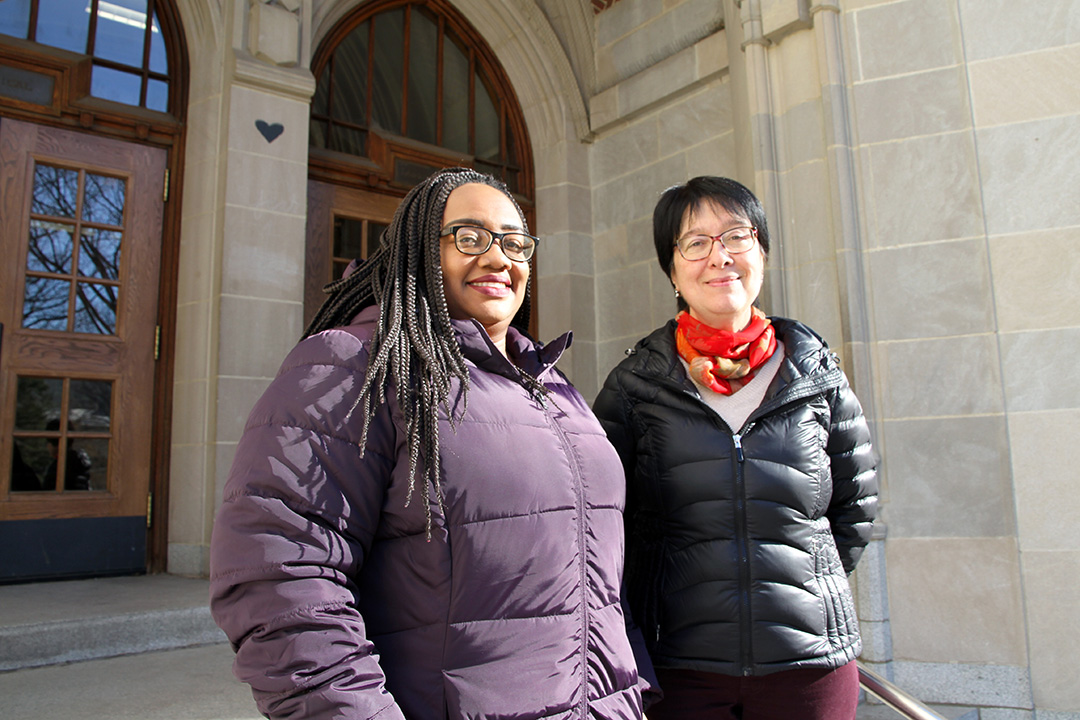
Driving healthy behaviour: From Nigeria to Canada
Using the powers of tech and e-commerce, University of Saskatchewan PhD student Ifeoma Adaji is on a mission to help drive healthy behaviours around the world, from North America to her home country of Nigeria.
By Chris MorinMost people don’t realize it, but they are bombarded by personalized technologies, which, in combination with marketing techniques, can be used to hook people in to buy products. That’s why large tech companies are eager to collect their data—to use it for targeted advertisements for their paying customers (usually advertising agencies). However, the same technologies can be used to target fake news on social media, which gives any entity the power to influence voters and sway the course of democracy.
But what if these technologies could be used to change people’s behaviour through persuasion or social influence for the better, especially around health and lifestyle choices? That’s what Adaji aims to change.
Working with persuasive technologies in the College of Arts and Science’s Department of Computer Science, Adaji’s research is helping to inform others to make healthier choices online.
Persuasive technology can be any form of information and communication technology that interacts with people to change their attitude and behaviours online. Adaji said it’s about social benefits, namely getting consumers to adjust their lifestyle habits and start purchasing healthy foods via e-commerce sites.
“There’s a lot of research on convincing people to lead active lives—there are many apps that are used for exercise,” said Adaji. “But there’s not much for getting people to eat healthy. I know that this is a problem throughout the whole world, both here in Canada and in Nigeria.”
A lot of factors can influence someone’s decision to buy healthy foods. Eating healthy can be very expensive, but it doesn’t need to be so. Understanding the demographics and preferences of the users of e-commerce food markets allows programmers to tailor the persuasive strategies that can influence purchases towards more healthy choices.
Having previously worked in data analysis and as a developer, Adaji has long been passionate about using technology as a force for good. Having completed her master’s degree in e-commerce technology at the University of Aberdeen in Scotland, a Skype conversation with U of S professor Julita Vassileva led Adaji to Canada—a move that she considers life-changing.
“It felt like the right time to move,” said Adaji, who is from the Anambra State in southeastern Nigeria. “I applied for my PhD and once I arrived at the U of S I felt relieved, like it was the perfect time to leave.”
Now a member of the Multi-User Adaptive Distributed Mobile And Ubiquitous Computing Lab (MADMUC) on campus, Adaji’s research, which has ties to marketing and social psychology, is only going to become more important as the general population becomes increasingly more reliant on social media for day-to-day life, Vassileva said.
“Using persuasive technologies for good, getting people to be more engaged with social causes or to achieve goals that they set for themselves, are noble goals,” said Vassileva.
Adaji hopes her work will benefit the health of online shoppers, and she is happy to be conducting her research here at the U of S.
“For me, the experience has been excellent,” she said. “I feel supported, and not just me, but all of the students here in this department. When I am asked about my experiences, I can tell stories about the support I am getting here. It’s a very good time to be here.”

